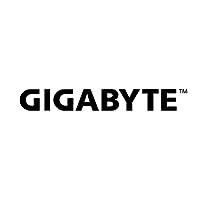Welcome to our comprehensive guide on laptop security features for data protection. In today’s digital age, ensuring the security of your laptop and sensitive data is of utmost importance. Whether you use your laptop for personal or business purposes, implementing the right security measures is essential to safeguard your information and prevent unauthorized access.
With the increasing prevalence of cyber threats, it is crucial to understand the various laptop security features available and their role in data protection. In this article, we will explore key security features, discuss their importance in India, highlight best practices for laptop security, and take a glimpse into emerging trends and the future outlook for laptop security solutions.
Key Takeaways:
- Laptop security features are vital for protecting sensitive data and preventing unauthorized access.
- Encryption, data backup, and biometric authentication are among the key security features for laptop data protection.
- In India, where laptop usage is widespread, laptop security solutions play a crucial role in preventing data breaches.
- Regular software updates, strong passwords, and firewall/antivirus software are important best practices for laptop security.
- Emerging trends in laptop security include biometric authentication, hardware-based security features, and cloud-based solutions.
Key Security Features for Laptop Data Protection
When it comes to ensuring data protection on your laptop, there are several key security features that you should consider. These features go beyond just having a strong password and antivirus software. By implementing these measures, you can enhance the security of your laptop and protect your valuable data from unauthorized access.
Encryption
One of the most important security features for laptop data protection is encryption. This technology converts your data into an unreadable format, making it difficult for anyone without the decryption key to access your information. By encrypting your laptop’s hard drive, you can safeguard your data even if your laptop falls into the wrong hands.
Biometric Authentication
Biometric authentication, such as fingerprint or facial recognition, provides an additional layer of security for your laptop. Instead of relying solely on a password, these features use unique biometric characteristics to verify your identity. This makes it harder for unauthorized users to gain access to your laptop and sensitive information.
Remote Tracking and Wiping
In the unfortunate event that your laptop is lost or stolen, having remote tracking and wiping capabilities can be a lifesaver. These features allow you to track the location of your laptop and remotely wipe its data to prevent it from falling into the wrong hands. With this level of control, you can ensure that your sensitive information remains secure.
Other important security features include privacy screens, which limit the viewing angles of your screen to protect your privacy, and anti-theft mechanisms such as Kensington locks or built-in tracking software. By utilizing these features, you can significantly enhance the security of your laptop and protect your data from potential threats.
In summary, implementing key security features is essential for laptop data protection. Encryption, biometric authentication, remote tracking and wiping capabilities, privacy screens, and anti-theft mechanisms are all important measures to consider. By taking steps to enhance the security of your laptop, you can safeguard your valuable data and prevent unauthorized access. Stay vigilant and keep your laptop secure to protect yourself from potential data breaches and privacy breaches.
Importance of Laptop Security in India
In India, where the use of laptops is widespread, ensuring data protection through laptop security features is crucial. With an increasing number of cyber threats, securing sensitive data has become a priority for individuals and businesses alike. Laptop security solutions play a vital role in preventing data breaches and unauthorized access to confidential information.
By implementing robust laptop security features, you can safeguard your valuable data from potential cyberattacks. These security solutions provide layers of protection, including encryption, remote tracking and wiping capabilities, and biometric authentication. Encryption ensures that your data is unreadable to unauthorized individuals, while remote tracking and wiping capabilities allow you to locate and erase data from a stolen or lost laptop. Biometric authentication, such as fingerprint or facial recognition, adds an extra layer of security by ensuring that only authorized users can access the device.
The risks of not prioritizing laptop security
Failure to prioritize laptop security can have severe consequences. Data breaches can lead to financial loss, reputation damage, and legal complications. In addition, unauthorized access to sensitive information can result in identity theft or fraud. With the increasing reliance on laptops for both personal and professional use, it is essential to take proactive steps to protect your data.
Investing in laptop security solutions not only safeguards your data but also provides peace of mind. By taking proactive measures to protect your laptop, you can minimize the risk of data breaches and ensure the confidentiality of your information.
Best Practices for Laptop Security
When it comes to securing your laptop and protecting your sensitive data, it’s important to go beyond just relying on built-in security features. By implementing a few best practices, you can significantly enhance your laptop’s security and reduce the risk of unauthorized access. Here are some key measures to consider:
- Regular software updates: Ensure that your operating system, antivirus software, and other applications are always up to date. Software updates often include important security patches that address vulnerabilities.
- Strong and unique passwords: Use complex passwords that are difficult to guess, and avoid using the same password for multiple accounts. Consider using a password manager to securely store and generate strong passwords.
- Enable firewall and antivirus software: Activate your laptop’s firewall and install reputable antivirus software to protect against malware, viruses, and other threats.
- Avoid suspicious links and downloads: Be cautious when clicking on links or downloading files from unfamiliar sources, as they may contain malware or phishing attempts.
- Encrypt sensitive data: Use encryption tools to protect your sensitive data, such as confidential documents or financial information. Encryption ensures that even if your laptop is compromised, the data remains unreadable without the decryption key.
- Back up important files: Regularly back up your important files to an external hard drive, cloud storage, or other backup solutions. This way, even if your laptop is lost, stolen, or suffers a hardware failure, you can still access your data.
Implementing these best practices will significantly enhance your laptop’s security and protect your valuable data from unauthorized access. By staying vigilant and proactive, you can ensure a safer computing experience.
Emerging Trends in Laptop Security
In the rapidly changing landscape of technology, laptop security continues to evolve to counter the ever-growing threats to data protection. Emerging trends in laptop security are shaping the way we safeguard our valuable information. These trends not only enhance the existing security measures but also introduce innovative features to ensure comprehensive data protection.
Fingerprint and Facial Recognition
Biometric authentication provides an additional layer of security by using unique physical features to verify the user’s identity. Fingerprint and facial recognition technologies are becoming more reliable and widely adopted, offering users a secure and convenient way to access their laptops.
Hardware-based Security Features
Trusted Platform Module (TPM) is a dedicated hardware chip embedded in laptops that securely stores encryption keys and performs cryptographic operations. It ensures the integrity of the system and protects against tampering, making it harder for attackers to compromise the laptop’s security.
Cloud-based Security Solutions
Cloud-based security solutions offer real-time threat detection, malware scanning, and remote data backup and recovery. By leveraging the power of the cloud, these solutions provide robust protection against data breaches, ensuring the confidentiality and availability of sensitive information.
Multi-Factor Authentication
Multi-factor authentication significantly strengthens the security of laptops by adding an extra layer of verification. This approach ensures that even if one factor is compromised, the attacker still needs to bypass additional authentication methods to gain access, making unauthorized access extremely difficult.
As the threat landscape continues to evolve, staying abreast of these emerging trends in laptop security is essential for individuals and businesses alike. By embracing these advancements and integrating them into laptop security strategies, users can effectively protect their data and stay one step ahead of potential threats.
Future Outlook for Laptop Security
As technology continues to advance at a rapid pace, the future of laptop security looks promising. With increasing concerns over data breaches and unauthorized access, the need for robust laptop security solutions has never been greater. In the coming years, we can expect to see advancements that leverage cutting-edge technologies to enhance threat detection and prevention.
One area that holds great potential is the integration of artificial intelligence (AI) and machine learning (ML) into laptop security systems. By harnessing the power of AI and ML algorithms, laptops can proactively analyze patterns and detect anomalies, enabling real-time threat intelligence and proactive protection. This will significantly bolster data security and provide users with peace of mind.
Another technology that may shape the future of laptop security is blockchain. Known for its secure and decentralized nature, blockchain can be utilized to enhance data security and privacy. By implementing blockchain technology, laptops can ensure secure and tamper-proof storage of sensitive data, making it extremely difficult for unauthorized parties to gain access.
Furthermore, the future of laptop security may also see advancements in multi-factor authentication (MFA). While traditional username and password combinations are susceptible to hacking, MFA adds additional layers of security by requiring multiple forms of authentication such as biometrics (fingerprint or facial recognition) or physical tokens. This makes it significantly harder for attackers to gain unauthorized access to laptops and sensitive data.
Overall, the future of laptop security holds great promise. Through innovative solutions that leverage technologies like AI, blockchain, and multi-factor authentication, laptops will become even more secure and resilient against evolving threats. As individuals and businesses continue to rely on laptops for their day-to-day operations, staying informed and embracing these advancements will be crucial to ensure the protection of valuable data.
Conclusion
Laptop security features are crucial for protecting your sensitive data and preventing unauthorized access. By utilizing the built-in security measures, implementing best practices, and staying informed about emerging trends, you can enhance the security of your laptop and safeguard your valuable information.
With the increasing adoption of laptops in India, ensuring data protection through laptop security features becomes even more important. The use of encryption, data backup, biometric authentication, and privacy screens are just some of the laptop protection features that help safeguard your data from cyber threats.
The best example of a laptop with a great security feature is the HP ProBook 440 G8 Notebook PC Wolf Pro Security Edition, which protects your PC with browser-based threat containment, AI-based malware scanning, anti-phishing cre-dential protection.
However, it’s not just about the hardware and software solutions. Following best practices such as regular software updates, strong and unique passwords, and avoiding suspicious links and downloads can further enhance your laptop security. Taking these measures can significantly reduce the risk of data breaches and unauthorized access.
As technology continues to advance, the future of laptop security holds great potential for even stronger data protection solutions. With advancements in artificial intelligence and machine learning, laptops may leverage these technologies to enhance threat detection and prevention. Additionally, the integration of blockchain technology may provide enhanced data security and privacy.
Overall, laptop security solutions are continuously evolving, and it’s essential to stay updated with the latest trends and technologies to ensure the security of your data. By prioritizing and implementing laptop security features, you can have peace of mind knowing that your sensitive information is well-protected.
Compare and view all the best business laptops online






















